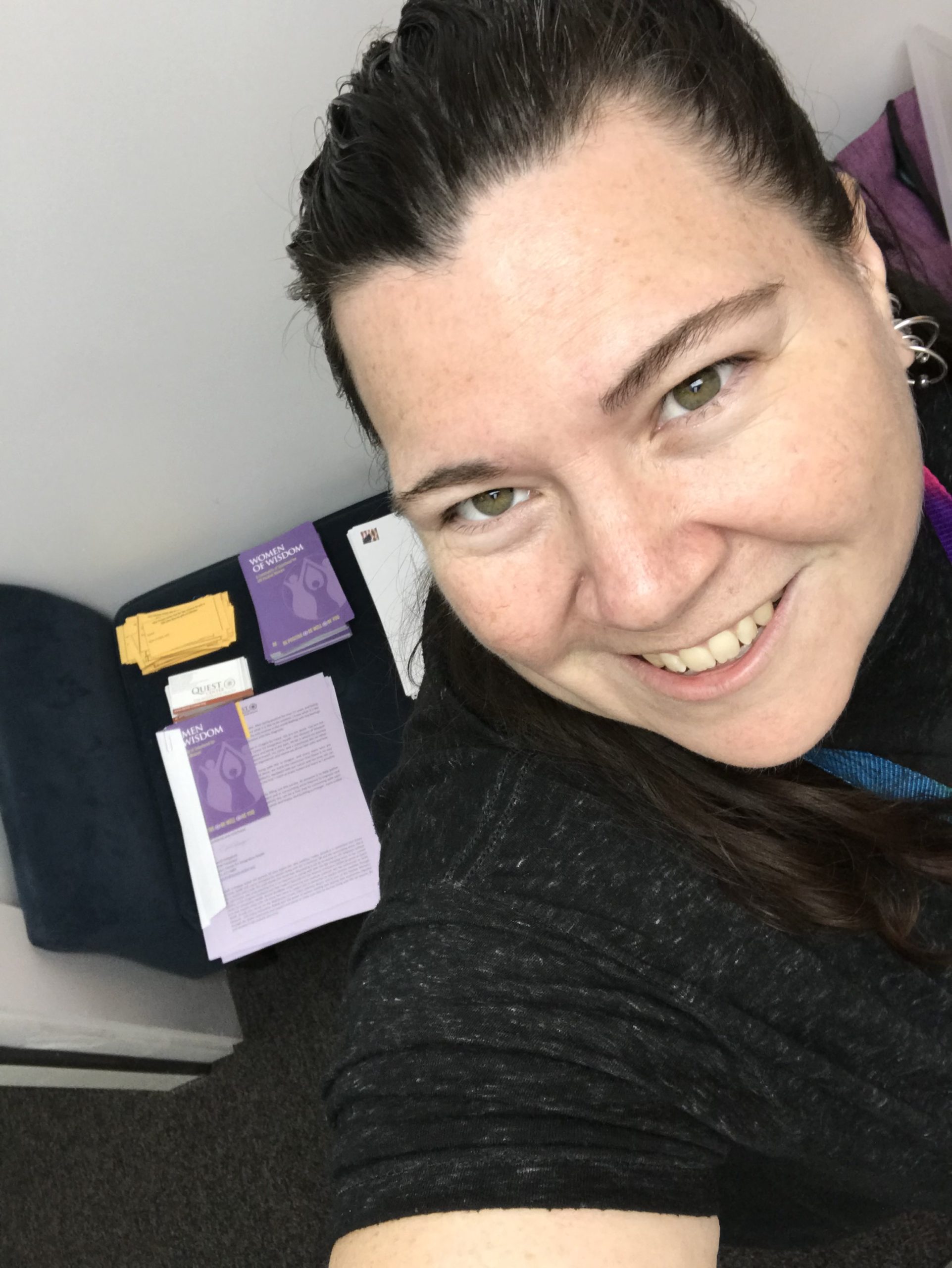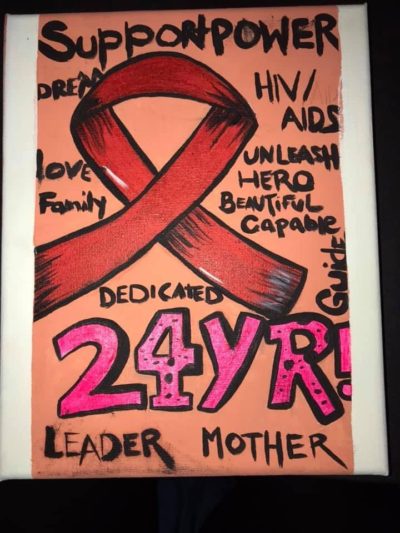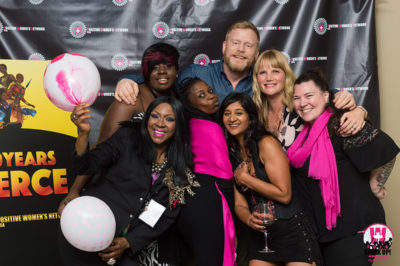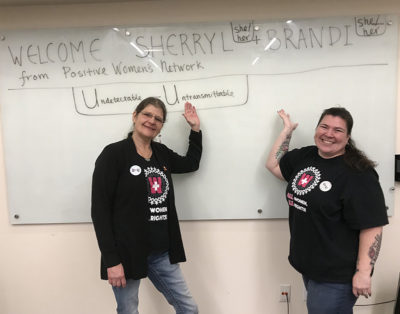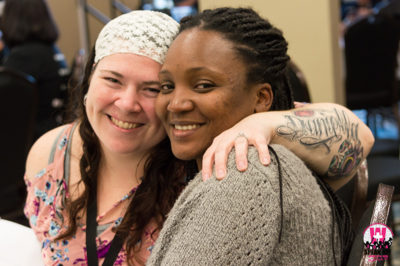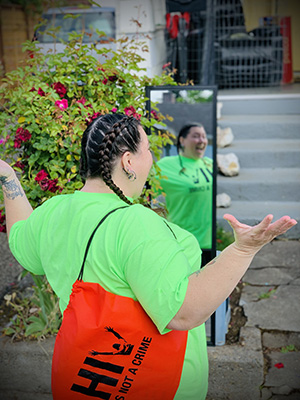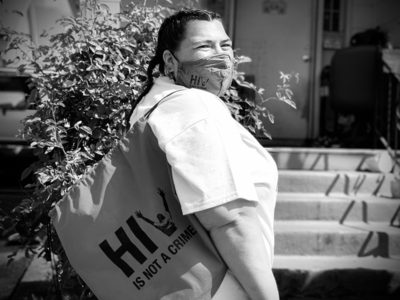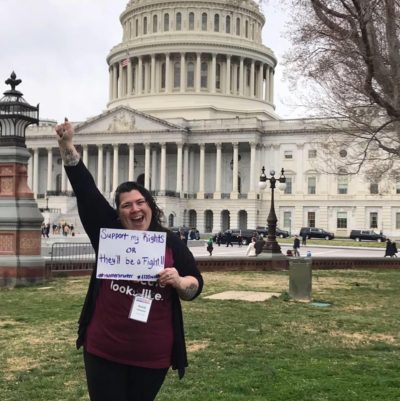
Our August 2021 Shero of the Month is Brandi “Bee” Velasquez of Portland, Oregon. A PWN policy fellowship graduate and PWN Oregon state lead, Brandi is a superstar HIV advocate who gives a lot of herself to make life better for other women living with HIV. “Brandi is the definition of a persistent advocate,” said Jennie Smith-Camejo, PWN communications director. “She shows up, she follows through on her commitments and does what she says she’s going to do, and she does it with a smile. She always tries to bring others along with her, like the leader she is. She radiates good energy and positivity, which is really refreshing when you’re dealing with such tough issues.”
Brandi was diagnosed with HIV at just 15 years old. “It was a real challenge–I had just started as a freshman in high school,” she said. For over ten years, she kept her HIV status quiet, as she dropped out of high school, got her GED and entered the Job Corps, got her certified nursing assistant (CNA) license, and went to work in a nursing home.
After joining a support group that helped her find her voice, she branched out. “I realized I could do this, I could be the outreach coordinator, I could bring women in,” she explained. She started her advocacy through peer support in 2007 and just kept going. “I was so embedded in the community in Portland that advocacy for women and children was a priority. It’s a small population, so my goal was to reach as many women as I could while I was working at this nonprofit and integrating myself in advocacy work, becoming a certified peer support specialist.”
Learning about policy changed everything for her. “Attending the PWN Speak Up! Summit in 2016 and then doing the policy fellowship really taught me about and opened my eyes to policy in a way I didn’t know existed or didn’t know I could be part of,” she said. She started focusing more on policy and less on peer support—thinking about how she could help change local, state, and federal policy.
The policy issue Brandi is most focused on right now is reproductive rights. “I learned from PWN that you have to take something that really applies to you personally to do effective advocacy,” she said. “My daughter has a bleeding disorder and has to be on birth control [to control it]. Reproductive rights were something that really motivated me to be able to take action in other areas. I don’t want our reproductive rights to go away. I don’t want Planned Parenthood to go away.” That’s why Brandi dedicated a lot of time and effort to calling Colorado voters during the 2020 election to educate them about an abortion ban ballot initiative and mobilize them to vote no.
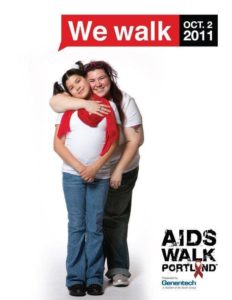 Another area Brandi devotes considerable time and energy to is advocating for the inclusion of and support for “negative long-term survivors”—the partners, children, parents, and other close family members of long-term survivors of HIV. “I wouldn’t be where I am today if not for my husband and my daughter,” she explained. “We don’t often hear their stories and their journeys, and there’s not always a place at the table for them. If you are going through this and need support, your partner does too. Your kids do too. Often people living with HIV have support groups, but there aren’t really groups for their partners or kids to go to. Where do they fit in the circle? Where can we create a space for negative long-term survivors and get support for them?”
Another area Brandi devotes considerable time and energy to is advocating for the inclusion of and support for “negative long-term survivors”—the partners, children, parents, and other close family members of long-term survivors of HIV. “I wouldn’t be where I am today if not for my husband and my daughter,” she explained. “We don’t often hear their stories and their journeys, and there’s not always a place at the table for them. If you are going through this and need support, your partner does too. Your kids do too. Often people living with HIV have support groups, but there aren’t really groups for their partners or kids to go to. Where do they fit in the circle? Where can we create a space for negative long-term survivors and get support for them?”
She has also been advocating to expand the Ryan White transitional grant area to include Marion County outside of Portland. “Marion County is not included, but the numbers [of people living with HIV] are higher there,” she said. “I would love to see more services for families and women in general. A lot of the services in Oregon cater to men’s programs. There’s an aging well program; sometimes when I was going to that, but I didn’t fit in, because I’m not in their age range—even though I am aging with HIV too. I’ve been living with HIV for almost 25 years. Sometimes people don’t take into consideration that aging with HIV can look different, and that segregates our community.”
It’s perhaps then not surprising that Brandi’s long-term goal is to run her own nonprofit organization for women living with HIV. “I’d integrate advocacy into the work–bringing women together in a group setting, with psychosocial support, and integrating advocacy. That’s what I was trying to do before when I was facilitating the women’s group. You have to get a group of people motivated to do something. Most of the women I know here are not that motivated. They ask why I continue to do what I do. I say, Who’s ahead of me? Who’s my elder leading the path right now? Who’s the younger one leading the path behind me? I have to leave footsteps for someone. Someone’s got to make a change around here. One voice, one day, one meeting at time, we will get there.”
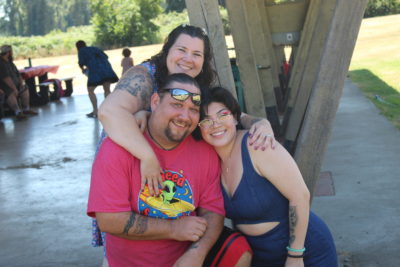 But it’s not all work all the time for Brandi! She lives with her two dogs in addition to her husband and 21-year-old daughter, who recently moved back home while she studies to be a veterinary assistant. She enjoys photography, especially of nature; making candles and soaps; drawing and coloring—“anything art therapy”; and playing video games. “My husband got me into being a gamer,” she laughed.
But it’s not all work all the time for Brandi! She lives with her two dogs in addition to her husband and 21-year-old daughter, who recently moved back home while she studies to be a veterinary assistant. She enjoys photography, especially of nature; making candles and soaps; drawing and coloring—“anything art therapy”; and playing video games. “My husband got me into being a gamer,” she laughed.
Her words of advice for women living with HIV thinking about getting into advocacy? “Advocacy starts with yourself. You have to be your own best advocate first.
“We leave no one behind. When you get into policy advocacy, it’s a scary thing. I jumped into policy not knowing anything, but it paid off in the end, because you see how much support you receive and how much we can succeed and get done together as a group,” she explained. Indeed, her mottos are “No woman left behind” and “Being your own advocate, is the best advocate.”
“Don’t be intimidated by the word policy. Policy shows up in many different forms. When you hear the word policy, you may get intimidated by it. But it’s about applying it to your own life. When you make it personal, you can see where you can fit yourself in.”
- Brandi displays her PWN Policy Fellowship practicum project
- Brandi loves taking photos of nature
- Brandi loves taking photos of nature
- At the 2018 Speak Up! Summit
- Brandi with Sherryl Lamm for Sherryl’s PWN Policy Fellowship practicum
- Brandi & Thandi Harris at the 2018 Speak Up! Summit
- HIV Is Not a Crime IV
- HIV Is Not a Crime IV



